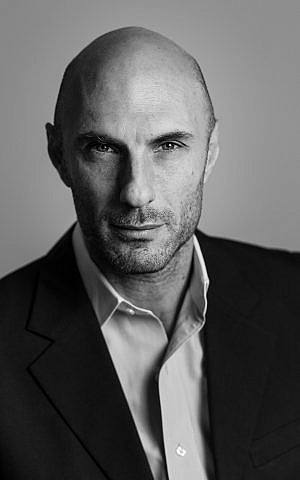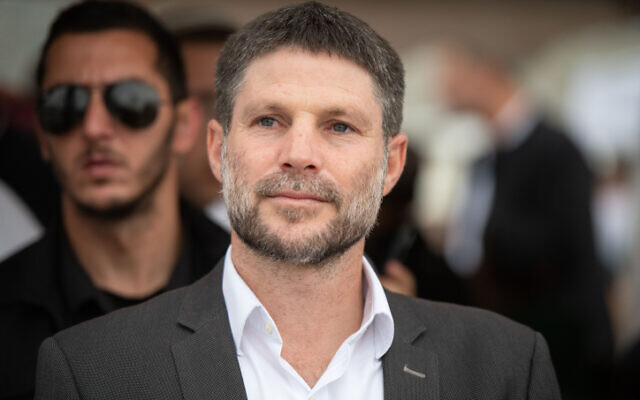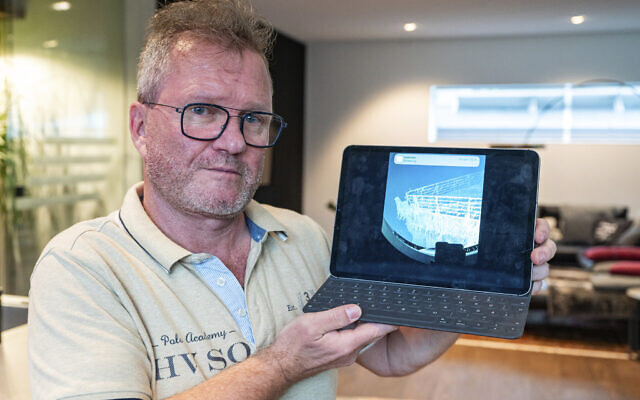Kernels of hope: This book picks 13 earthshaking innovators for world’s challenges
Avi Jorisch’s ‘Next’ spotlights countries and entrepreneurs playing outsized roles in tackling major challenges and finding solutions to mankind’s problems in the coming 30 years

Avi Jorisch, an entrepreneur and the author of six books, including “Thou Shalt Innovate: How Israeli Ingenuity Repairs the World,” is an optimist. His views about the future of humanity are so infectious that he manages to ignite a glimmer of hope even as crisis follows crisis: COVID-19, the Russia-Ukraine war, global inflation and economic slowdown and a judicial overhaul in Israel that is threatening the Middle East’s only democracy.
The key to Jorisch’s optimism lies in his ability to take a long view, he says, and in the access he has had to technologies and entrepreneurs as part of the 150 interviews he conducted over some three years while researching his new book “Next: A Brief History of the Future.” The book, published earlier this year, tells the story of 13 “game-changing innovations” that are significantly impacting human history.
“When you look at the long-term view, this is the best moment humans have ever been in,” Jorisch said in a recent Zoom interview with The Times of Israel. Wearing a beanie hat and rubbing his arms for warmth, he was speaking on a cold morning from Washington, DC, where he lives with his family. Jorisch is a dual US-Israeli citizen who also has a home in Israel.
To back up his optimism Jorisch cites the sharp global decline in poverty, which has come down from 38% in 1990 to 8.4% in 2019, a drop in child mortality, a rise in global literacy rates and what he said are “exponential” advances in technology.
“Many scientists are predicting that by 2030 many cancers we are dealing with will have a cure, and we are in the line of sight to see cures for major neurological diseases like Alzheimer’s, Tourette, essential tremor,” Jorisch said.
By then, much of the energy will be alternative, there will be many more electric vehicles, a human will be full-time on the moon and others will be starting to make their way to Mars, he said. Computers will also process data faster than a human brain, enabling “thoughts that we never had before, because we were constrained by speed,” Jorisch said.

Of the hundreds of thousands of Israeli citizens who have taken to the streets for 23 weeks in a row to protest a planned judicial overhaul that threatens the nation’s democracy, Jorisch said that the moment was stirring.
“How do you not walk away inspired from a movement of… 500,000 people marching in the streets saying, we are proud patriots, we love our country. We’re here to stand up for liberal democratic values, and we’re going to make our voices heard. No matter where you are on the political side of the spectrum, I find that to be an extraordinarily inspiring moment,” Jorisch said.
“When we look back on this, a few years from today, we will look at this as being a show of a resilient society: our citizens standing up and saying what is happening doesn’t work for us. We’re going to make our voices heard in a peaceful manner, without burning, without looting, without violence.”
While for his “Thou Shalt Innovate” book Jorisch looked at 15 Israeli-founded technologies that have already made an impact collectively on the lives of billions of people, for “Next,” Jorisch said his aim was to look ahead at the coming 30 years to see what great trends are impacting the world and the global challenges humanity will be facing.
He identified individuals, companies, ventures, and countries around the world that are already playing a significant role in solving these looming problems, “giving us a sneak peek as to what the future looks like,” he said.
The innovations featured in the book address 13 critical areas outlined by the United Nations as key sustainable development goals: space, learning, shelter, the environment, hygiene, medicine, disaster resilience, energy, prosperity, food, water, governance, and security.
In each of these areas, Jorisch said, he looked for the “one extraordinary person, venture company or country which is helping solve that problem, in part, and will ultimately shape the course of human events.”
Among the initiatives mentioned in “Next” are the Khan Academy, founded by Salman Khan, which is a free online learning platform that provides courses in a variety of languages. The Khan Academy gives over a billion people around the world access to a high-quality free education.
There is also the Innovation Africa project set up by the Israeli social entrepreneur Sivan Yaari, which uses solar panels, a refrigerator, a water pump, and a computer to create self-sufficient infrastructure that gives Africans access to clean water, education, refrigeration, medicines and food security.
In the Space segment, Jorisch talks about how 3D printing in space will help revolutionize travel, telecommunications, and other industries on Earth, while in the governance and environment segments, “Next” discusses how Estonia and the Netherlands are respectively trailblazing a path to a fully digital society by providing hundreds of services on the cloud, and keeping rising oceans in check. Japan has contributed to disaster resilience by using recycled paper tubes that can withstand natural disasters, while CRISPR gene editing is set to transform medicine, enabling the manipulation of the genes of plants and animals, with the potential to alter entire species, with wonderful but also possibly horrific consequences.

“I looked at the various challenges that we face, and I tried to identify either a venture, a company or country that I felt was playing an outsized role in solving that challenge,” he said. “It became clear that there were many, many such ventures. I chose the ones that I thought had an extraordinary story to tell and inspired me.”
Each time he conducted the interviews he tested out the story over dinner with his three boys aged 12, 10 and 7.5, to gauge the impact it had on them.
“My optimism comes from all the interviews I did for ‘Next’ and also for ‘Thou Shalt Innovate,’” Jorisch said. “Between the 300 people roughly that I interviewed for both books, when you interact, when you spend time with those people around the world that are shaping the course of human events, you can’t not be an optimist.”
Next: A Brief History of the Future by Avi Jorisch
This article contains affiliate links. If you use these links to buy something, The Times of Israel may earn a commission at no additional cost to you.
There's no paywall on The Times of Israel, but the journalism we do is costly. As an independent news organization, we are in no way influenced by political or business interests. We rely on readers like you to support our fact-based coverage of Israel and the Jewish world. If you appreciate the integrity of this type of journalism, please join the ToI Community.

We’re really pleased that you’ve read X Times of Israel articles in the past month.
That’s why we started the Times of Israel eleven years ago - to provide discerning readers like you with must-read coverage of Israel and the Jewish world.
So now we have a request. Unlike other news outlets, we haven’t put up a paywall. But as the journalism we do is costly, we invite readers for whom The Times of Israel has become important to help support our work by joining The Times of Israel Community.
For as little as $6 a month you can help support our quality journalism while enjoying The Times of Israel AD-FREE, as well as accessing exclusive content available only to Times of Israel Community members.
Thank you,
David Horovitz, Founding Editor of The Times of Israel









